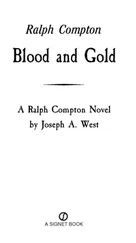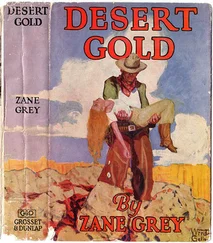Myrtle Reed - Threads of Grey and Gold
Здесь есть возможность читать онлайн «Myrtle Reed - Threads of Grey and Gold» — ознакомительный отрывок электронной книги совершенно бесплатно, а после прочтения отрывка купить полную версию. В некоторых случаях можно слушать аудио, скачать через торрент в формате fb2 и присутствует краткое содержание. Жанр: Поэзия, foreign_prose, foreign_poetry, на английском языке. Описание произведения, (предисловие) а так же отзывы посетителей доступны на портале библиотеки ЛибКат.
- Название:Threads of Grey and Gold
- Автор:
- Жанр:
- Год:неизвестен
- ISBN:нет данных
- Рейтинг книги:5 / 5. Голосов: 1
-
Избранное:Добавить в избранное
- Отзывы:
-
Ваша оценка:
- 100
- 1
- 2
- 3
- 4
- 5
Threads of Grey and Gold: краткое содержание, описание и аннотация
Предлагаем к чтению аннотацию, описание, краткое содержание или предисловие (зависит от того, что написал сам автор книги «Threads of Grey and Gold»). Если вы не нашли необходимую информацию о книге — напишите в комментариях, мы постараемся отыскать её.
Threads of Grey and Gold — читать онлайн ознакомительный отрывок
Ниже представлен текст книги, разбитый по страницам. Система сохранения места последней прочитанной страницы, позволяет с удобством читать онлайн бесплатно книгу «Threads of Grey and Gold», без необходимости каждый раз заново искать на чём Вы остановились. Поставьте закладку, и сможете в любой момент перейти на страницу, на которой закончили чтение.
Интервал:
Закладка:
Tradition tells us of the unusual beauty of the mother —
“the high expanded forehead, the smooth arched brow; the brilliant dark eyes; the well defined nose; the full round laughing lips; the tall graceful figure, the beautiful dark hair; an open cheerful countenance – suffused with that deep, rich Oriental tint which never seems to fade, all of which made her the most beautiful and attractive woman of her age.”
She was a wife at sixteen, and at twenty-six a widow. Three years after the death of her husband, she married St. George Tucker, of Bermuda who proved to be a kind father to her children.
In the winter of 1781, Benedict Arnold, the traitor who had spread ruin through his native state, was sent to Virginia on an expedition of ravage. He landed at the mouth of the James, and advanced toward Petersburg. Matoax, Randolph’s home, was directly in the line of the invading army, so the family set out on a cold January morning, and at night entered the home of Benjamin Ward, Jr.
John Randolph was seven years old, and little Maria Ward had just passed her fifth birthday. The two children played together happily, and in the boy’s heart was sown the seed of that grand passion which dominated his life.
After a few days, the family went on to Bizarre, a large estate on both sides of the Appomattox, and here Mrs. Tucker and her sons spent the remainder of the year, while her husband joined General Greene’s army, and afterward, the force of Lafayette.
In 1788, John Randolph’s mother died, and his first grief swept over him in an overwhelming torrent. The boy of fifteen spent bitter nights, his face buried in the grass, sobbing over his mother’s grave. Years afterward, he wrote to a friend, “I am a fatalist. I am all but friendless. Only one human being ever knew me. She only knew me.”
He kept his mother’s portrait always in his room, and enshrined her in loving remembrance in his heart. He had never seen his father’s face to remember it distinctly, and for a long time he wore his miniature in his bosom. In 1796, his brother Richard died, and the unexpected blow crushed him to earth. More than thirty years afterward he wrote to his half-brother, Henry St. George Tucker, the following note:
“Dear Henry
“Our poor brother Richard was born in 1770. He would have been fifty-six years old the ninth of this month. I can no more.
”J. R. of R.”At some time in his early manhood he came into close relationship with Maria Ward. She had been an attractive child, and had grown into a woman so beautiful that Lafayette said her equal could not be found in North America. Her hair was auburn, and hung in curls around her face; her skin was exquisitely fair; her eyes were dark and eloquent. Her mouth was well formed; she was slender, graceful, and coquettish, well-educated, and in every way, charming.
To this woman, John Randolph’s heart went out in passionate, adoring love. He might be bitter and sarcastic with others, but with her he was gentleness itself. Others might know him as a man of affairs, keen and logical, but to her he was only a lover.
Timid and hesitating at first, afraid perhaps of his fiery wooing, Miss Ward kept him for some time in suspense. All the treasures of his mind and soul were laid before her; that deep, eloquent voice which moved the multitude to tears at its master’s will was pleading with a woman for her love.
What wonder that she yielded at last and promised to marry him? Then for a time everything else was forgotten. The world lay before him to be conquered when he might choose. Nothing would be too great for him to accomplish – nothing impossible to that eager joyous soul enthroned at last upon the greatest heights of human happiness. And then – there was a change. He rode to her home one day, tying his horse outside as was his wont. A little later he strode out, shaking like an aspen, his face white in agony. He drew his knife from his pocket, cut the bridle of his horse, dug his spurs into the quivering sides, and was off like the wind. What battle was fought out on that wild ride is known only to John Randolph and his God. What torture that fiery soul went through, no human being can ever know. When he came back at night, he was so changed that no one dared to speak to him.
He threw himself into the political arena in order to save his reason. Often at midnight, he would rise from his uneasy bed, buckle on his pistols, and ride like mad over the country, returning only when his horse was spent. He never saw Miss Ward again, and she married Peyton Randolph, the son of Edmund Randolph, who was Secretary of State under Washington.
The entire affair is shrouded in mystery. There is not a letter, nor a single scrap of paper, nor a shred of evidence upon which to base even a presumption. The separation was final and complete, and the white-hot metal of the man’s nature was gradually moulded into that strange eccentric being whose foibles are so well known.
Only once did Randolph lift even a corner of the veil. In a letter to his dearest friend he spoke of her as:
“One I loved better than my own soul, or Him who created it. My apathy is not natural, but superinduced. There was a volcano under my ice, but it burnt out, and a face of desolation has come on, not to be rectified in ages, could my life be prolonged to patriarchal longevity.
“The necessity of loving and being loved was never felt by the imaginary beings of Rousseau and Byron’s creation, more imperiously than by myself. My heart was offered with a devotion that knew no reserve. Long an object of proscription and treachery, I have at last, more mortifying to the pride of man, become an object of utter indifference.”
The brilliant statesman would doubtless have had a large liberty of choice among the many beautiful women of his circle, but he never married, and there is no record of any entanglement. To the few women he deemed worthy of his respect and admiration, he was deferential and even gallant. In one of his letters to a young relative he said:
“Love to god-son Randolph and respectful compliments to Mrs. R. She is indeed a fine woman, one for whom I have felt a true regard, unmixed with the foible of another passion.
“Fortunately or unfortunately for me, when I knew her, I bore a charmed heart. Nothing else could have preserved me from the full force of her attractions.”
For much of the time after his disappointment, he lived alone with his servants, solaced as far as possible by those friends of all mankind – books. When the spirit moved him, he would make visits to the neighbouring plantations, sometimes dressed in white flannel trousers, coat, and vest, and with white paper wrapped around his beaver hat! When he presented himself in this manner, riding horseback, with his dark eyes burning, he was said to have presented “a most ghostly appearance!”
An old lady who lived for years on the banks of the Staunton, near Randolph’s solitary home, tells a pathetic story:
She was sitting alone in her room in the dead of winter, when a beautiful woman, pale as a ghost, dressed entirely in white, suddenly appeared before her, and began to talk about Mr. Randolph, saying he was her lover and would marry her yet, as he had never proved false to his plighted faith. She talked of him incessantly, like one deranged, until a young gentleman came by the house, leading a horse with a side-saddle on. She rushed out, and asked his permission to ride a few miles. Greatly to his surprise, she mounted without assistance, and sat astride like a man. He was much embarrassed, but had no choice except to escort her to the end of her journey.
The old lady who tells of this strange experience says that the young woman several times visited Mr. Randolph, always dressed in white and usually in the dead of winter. He always put her on a horse and sent her away with a servant to escort her.
Читать дальшеИнтервал:
Закладка:
Похожие книги на «Threads of Grey and Gold»
Представляем Вашему вниманию похожие книги на «Threads of Grey and Gold» списком для выбора. Мы отобрали схожую по названию и смыслу литературу в надежде предоставить читателям больше вариантов отыскать новые, интересные, ещё непрочитанные произведения.
Обсуждение, отзывы о книге «Threads of Grey and Gold» и просто собственные мнения читателей. Оставьте ваши комментарии, напишите, что Вы думаете о произведении, его смысле или главных героях. Укажите что конкретно понравилось, а что нет, и почему Вы так считаете.












